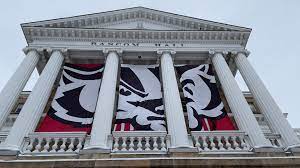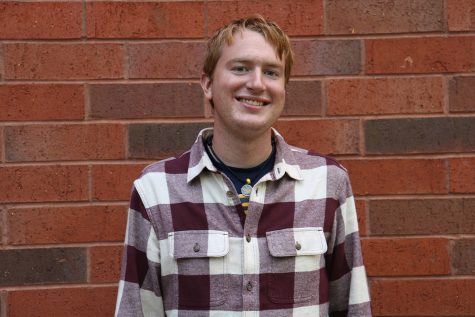Free Speech Survey postponed by UW System
UW system Survey was delayed after one Chancellor resigns

Free speech survey postponed after chancellors raise concerns and one resigns.
A UW-System survey meant to assess student free speech has been postponed after the interim chancellor of UW-Whitewater resigned.
The survey was scheduled to be sent to students on all UW-System campuses last Thursday but has been delayed to next fall after several chancellors raised concerns about the survey’s bias and political purpose, according to the Wisconsin State Journal.
Former UW-Whitewater Chancellor Jim Henderson cited the UW-System’s handling of the survey as one of the reasons for his resignation, calling it the latest example of a “top-down approach to leadership.”
Henderson explained his resignation in an interview with the Wisconsin State Journal.
“I thought chancellors had a role and a collaborative process in making decisions with the System, and I feel that was not honored,” Henderson said.
UW-System President Michael Falbo announced that Provost John Chenoweth will replace Henderson as interim chancellor.
The decision to delay the survey came from Tim Schiell, a professor at UW-Stout and Director of the Menard Center for the Study of Institutions and Innovation, in an email to Falbo.
“The extra time will enable us to answer fully and accurately the avalanche of questions arising,” Shiell said in the email.
The survey is meant to gauge students’ knowledge of their free speech rights and asks if students see problems in viewpoint diversity on their campuses, according to the UW-System.
The UW-System announcement said the survey is funded by UW-Stout’s Menard Center for Policy and Service.
According to the State Journal, the Menard Center has received donations from several GOP mega-donors including the Menard family and the Charles Koch Foundation.
Shiell said the goal of the survey is to gather data that will help address future questions regarding free speech with facts instead of speculation.
“Without this survey, the System will continue to be forced to address future free speech controversies from a purely post hoc and anecdotal perspective,” Fabio said in a different email to Falbo.
Other officials have argued the survey is problematic.
UW-Madison professor Mark Copelovitch criticized the survey on Twitter saying it is meant to generate data to support a predetermined political narrative.
UW-Eau Claire professor Matt Jewell also took to Twitter to question the political motives behind the survey.
“How many times do we have to say it?” Jewell said. “System and its campuses ‘constantly’ jump through artificial hoops to ‘avoid political fallout’ at the state level. Then budget time comes and they gash us anyway. There is zero payoff for this constant institutional self-harm.”
According to the State Journal, Michael Bernard-Donals, another UW-Madison professor, called the survey “McCarthy-like.”
Dr. Eric Kasper, a political science and pre-law professor at UW-Eau Claire and an affiliate of the Eau Claire Menard Center for Constitutional Studies, said he hopes the Menard Center continues to give students the resources they need to inform themselves about these topics.
“The mission of the non-partisan Menard Center for Constitutional Studies is to promote research, education and community outreach on matters related to the United States Constitution and the Wisconsin Constitution,” Kasper said.
Kasper said the freedom of speech is an essential right that applies to public university campuses and students should be able to explore.
“Our center will be helping students explore this right more deeply when Dr. Cornel West and Dr. Robert George will be the featured guests for an upcoming in-person event at UW-Eau Claire,” he said.
The Freedom of Expression and Civil Discourse event will be held at 7 p.m. on Thursday, May 5.
Kasper said the guest speakers are both accomplished professors and authors who have different political and social views.
“Through shared public events such as the one on our campus, they remind us that people with divergent views can have honest, thoughtful and respectful conversations about critical political and cultural issues,” Kasper said.
Mohr can be reached at [email protected].

Toby Mohr is a third-year journalism and political science student. This is his fourth semester on The Spectator. He enjoys playing tennis, reading a book and writing for fun.










